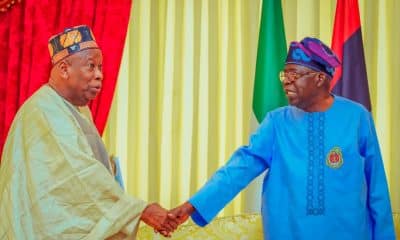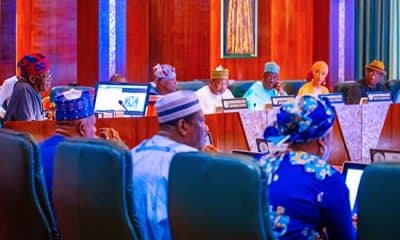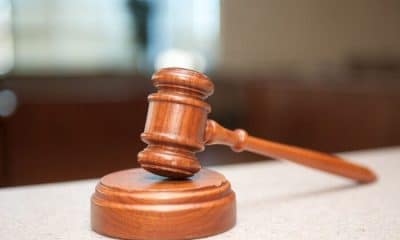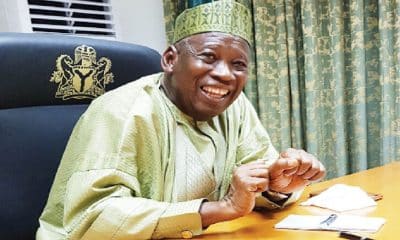Nigeria News
Why Corruption Thrives In Nigeria – Ganduje Reveals
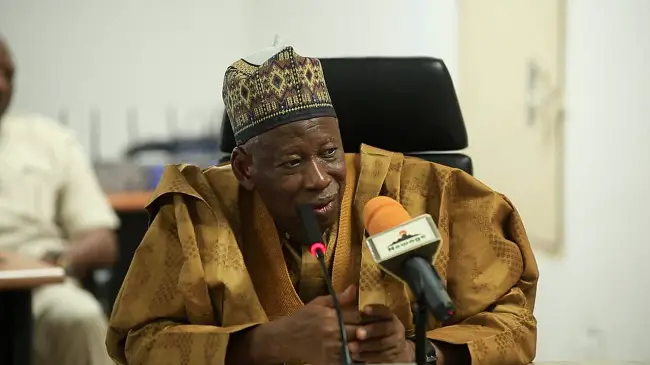
The national chairman of the ruling All Progressives Congress (APC), Abdullahi Ganduje, has revealed why corruption continues to thrive in Nigeria.
Ganduje, who spoke yesterday at a high-level meeting with national executives of political parties and other stakeholders in Abuja, organised by The Kukah Centre (TKC), said corruption thrives in the country because of its weak institutions.
The former Governor of Kano State said until this circle is broken and the institutions, including the Independent National Electoral Commission (INEC) and political parties, are made strong again; corruption will continue in the country.
Ganduje further attributed political corruption to dishonest poor Nigerians and others.
Ganduje emphasized that pointing fingers at politicians and public officeholders would not resolve the problem of weak institutions in Nigeria.
The APC chieftain, who is embroiled in a series of corruption cases in Kano, said, “The major problem we have in Nigeria is that of weak institutions because we are just going on an atrocious circle. Unless we break that circle and make our institutions strong, we are just blaming the politicians. Political parties are also weak, and because of that weakness, corruption thrives.
“Let us not be blaming the politicians, officeholders, those who win elections. Yes, we blame them but let us look at the security system, the Independent National Electoral Commission (INEC) that oversees the election.
“These institutions man the polling booths. So tell me, can you win an election free? Even the poor man is not honest. If we are to go into details of what happens practically, you will see voters saying they cannot vote until they are paid.’’
All Is A Work In Progress – Bishop Kukah Says
On his part, the founder of The Kukah Centre (TKC), Bishop Mathew Kukah, who led a panel discussion, advocated for the importance of reflecting on past errors and using them as a foundation to strengthen institutions and democracy in Nigeria via various methods.
He said, “Whether it is the judiciary or bureaucracy, all is a work in progress, and the most important thing is for us to learn the mistakes of the past and then develop the mechanism for ensuring that things don’t continue to repeat themselves.
“So, if you ask who built institutions? Institutions are supposed to be a mirror reflecting the aspirations, the fears, the hopes and the anxieties of an entire people. That means that for the police to become an institution and for the bureaucracy to become an institution, Nigerians must collectively and individually learn to say no to things going contrary to the principles of that institution.
“So, I think it is everybody’s business really for Nigeria to have stronger institutions.’’
Bishop Kukah commended the European Union for strengthening democracy in Nigeria, especially in developing the Political Party Management Toolkit (PPMT).

